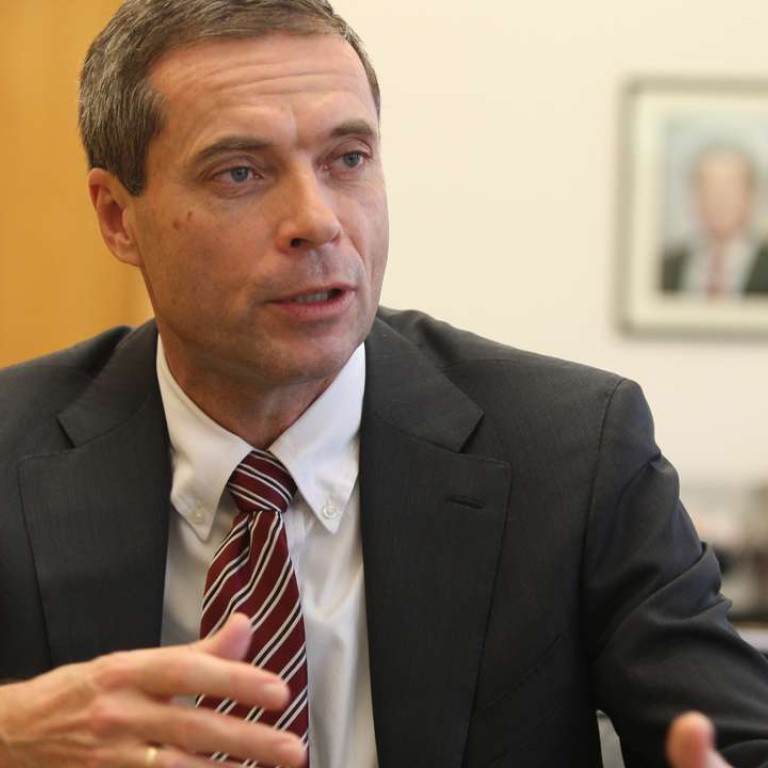
‘German firms are having a hard time in China’: ambassador points to rising protectionism ahead of Hangzhou G20 summit
Michael Clauss urges Beijing to further open up its state sector as he calls for fair competition
Beijing, which is becoming increasingly protectionist, must do more to open up its state sector, Germany’s ambassador to China says.
Michael Clauss’ comments in an exclusive interview with the South China Morning Post comes days before the G20 summit, during which Beijing is set to urge the Group of Twenty major economies to lower protectionist measures.
The summit will take place in Hangzhou, eastern Zhejiang province, on September 4 and 5.
“Protectionism is on the rise in many countries, certainly also here in China,” Clauss said.
“Effectively fighting protectionism in China would have to include an ambitious reform of its state-owned enterprises ... The privileged role of SOEs is the main obstacle preventing fair competition – both with China’s own private sector and with foreign companies.”
The German ambassador’s remarks reflect China’s challenge in convincing its major trading partners of its sincerity in opening up its domestic market to foreign competition as well as its willingness to act as a leader to promote fair play in international trade.
“German companies are having an increasingly hard time over here in China,” Clauss said, adding that some of those businesses were already scouting for alternative investment options in other regions.
“There is the feeling that the climate is changing in China and our companies increasingly feel less welcome here.”
As China rolls out the red carpets for foreign dignitaries including German Chancellor Angela Merkel at the Hangzhou summit next week, concerns about the country’s reforms and openness are undermining its credibility to shape the global growth agenda.
China and the European Union have had a few trade disputes in recent years, with member states complaining about Chinese steel products flooding the European market and Beijing uneasy with the EU’s refusal to unconditionally grant it “market economy” status.
China is eager to learn advanced manufacturing techniques from Germany, while Germany hopes to gain deep penetration into China’s markets.
Clauss said it was “more or less impossible” for a German firm to invest in China through acquisition, while Germany had never refused a single Chinese investment.
He cited the example of a recent deal by Chinese home appliance giant Midea to take over KUKA, a German hi-tech company.
China’s focus on cybersecurity might hinder the country’s pursuit to upgrade its traditional manufacturing and industrial facilities as such upgrading required “free, secure and transnational flow of huge volumes of data”, he said.
The country’s latest draft of its cybersecurity law may require foreign firms to hand over encryption codes or to store all China-generated data on Chinese servers.
Such measures, on top of China’s “Great Firewall”, threatened to compromise “the integrity and authenticity of data flows”, Clauss said.
But the German ambassador said Berlin saw Europe’s refugee crisis as an issues of “particular importance”.
“[Germany] would like to see this issue addressed by the G20,” Clauss said.


